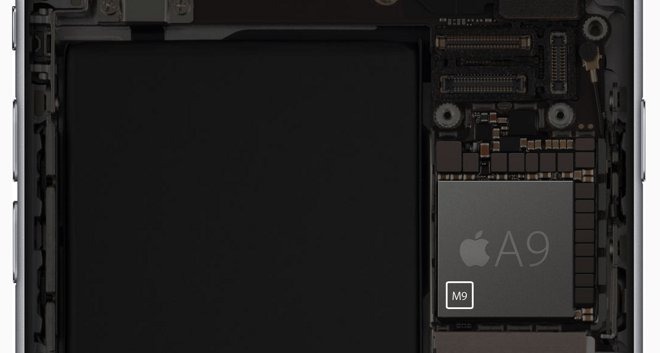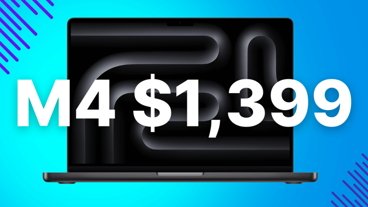Financial research firm Cowen and Company believes Intel will supply Apple with 50 percent or more of the LTE modems needed for "iPhone 7," a win that could generate some $1.5 billion in incremental revenue over the next year for the chipmaker.
In a note to investors on Sunday, obtained by AppleInsider, analyst Timothy Arcuri said recent field checks indicate Intel's share of "iPhone 7" component supply is much higher than expected. Specifically, the firm could provide Apple with about 100 million to 110 million 7360 LTE modems over the next-generation iPhone's lifetime, up from previous estimates of about 25 percent.
The massive parts order could drive $1.5 billion in revenue for Intel, and since development costs have largely been accounted for, $850 million of that sum would be marked as operational profits, Cowen estimates.
"While this is certainly a meaningful number, the psychological effect for [Intel] is even greater as it opens up an entirely new non-CCG narrative," Arcuri said, referring to Intel's Client Computing Group.
For Apple, Arcuri believes the move away from Qualcomm is merely a move to further diversify its supply chain, an overarching product manufacturing strategy that has accelerated in recent years under CEO Tim Cook.
Intel's win is the result of an internal effort to market the 7360 chipset to Apple, which has for years relied on Qualcomm as a single-source modem supplier. Last October, reports claimed Intel had 1,000 people working on a project seeking to better integrate its next-generation LTE modem into 2016's iPhone. Apple also dedicated engineers to the initiative based out of Intel's German facilities, formerly the location of modem maker Infineon, and hired key personnel from the chipmaker's 7360 development team.
Looking ahead, Arcuri believes Intel might leverage the deal to one day integrate its modem technology into Apple's A-series processor. Bringing the baseband chip and supporting components onboard the application processor not only saves space, but promises higher operating efficiency and lower manufacturing costs. The analyst speculates Apple might even opt to use Intel's foundry, pushing Qualcomm completely out of the picture.
Cowen is not the first to report on Intel's supposed 50-percent share of iPhone modem orders, as supply chain rumors in May claimed much the same. Most recently, a report in June said Intel's chipset would land in all "iPhone 7" models produced for AT&T's U.S. cellular network, as well as a handful of international iterations.
Apple is widely expected to launch its next-generation smartphone in September with updated internals and minor design tweaks. A supposed parts leak earlier today highlighted a larger rear-facing camera lens and reconfigured antenna lines on what is thought to be a 4.7-inch model.
 Mikey Campbell
Mikey Campbell







-m.jpg)






 Christine McKee
Christine McKee
 Malcolm Owen
Malcolm Owen

 Sponsored Content
Sponsored Content

 Amber Neely
Amber Neely











9 Comments
I believe that Apple has some special exclusive functionality in these modem chips.
Until Apple makes their own modem.
Eh, I hate to be an "I told you so", but I told you so.
The problem is that Intel hasn't been a great friend of Apple with their ultrabook program and unwillingness to back the iPhone out of the gate.
What is a modem? Whatever it is sounds like rumors of 7 dead may be premature.